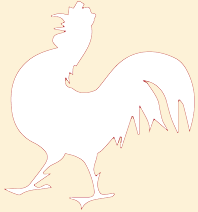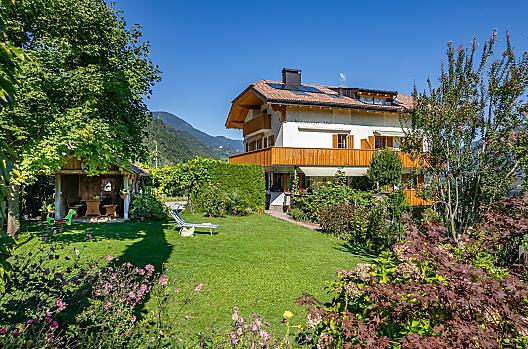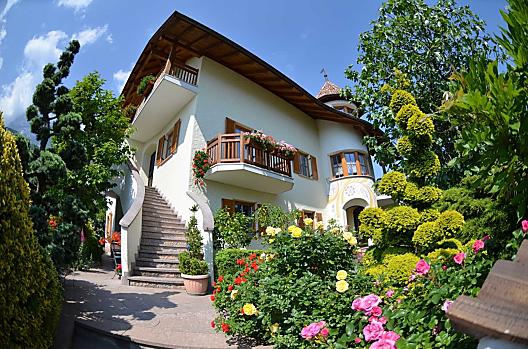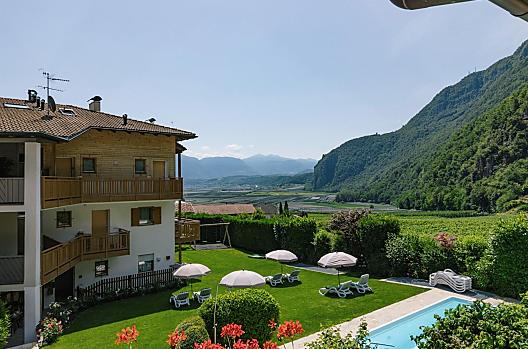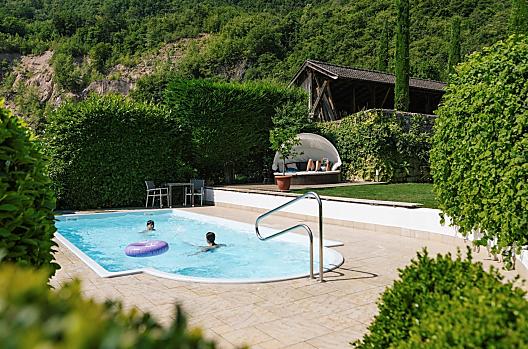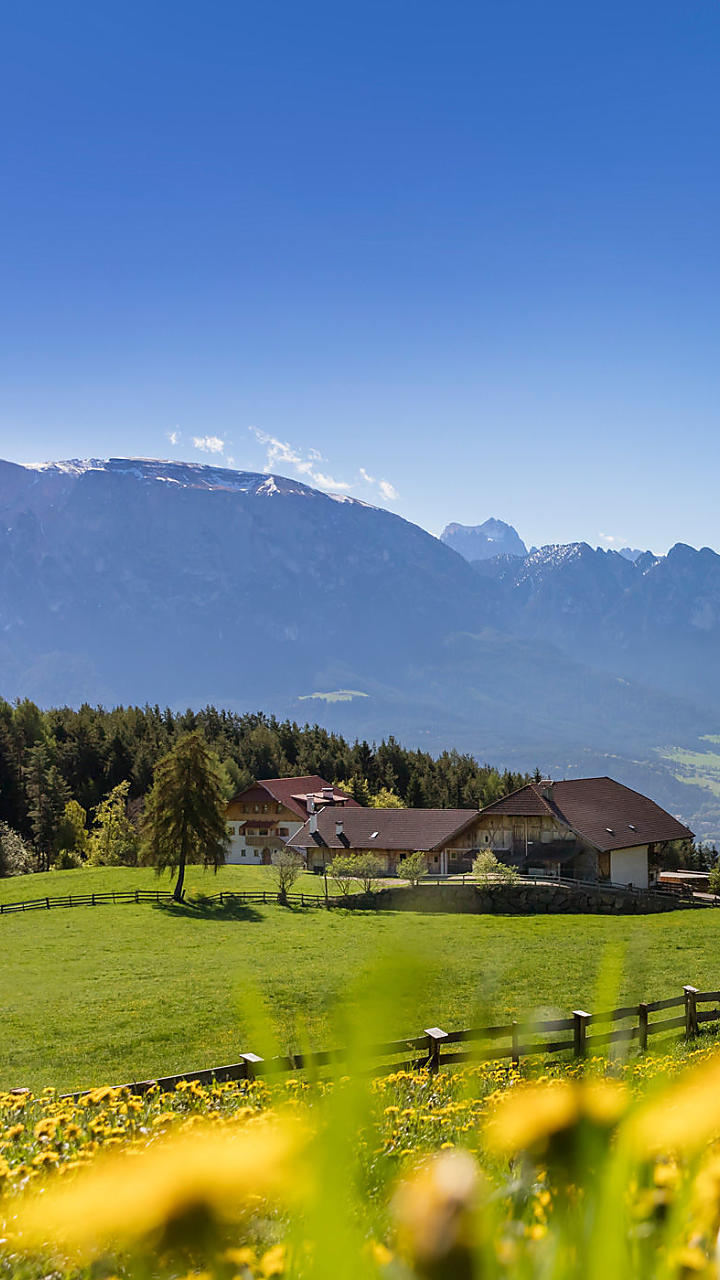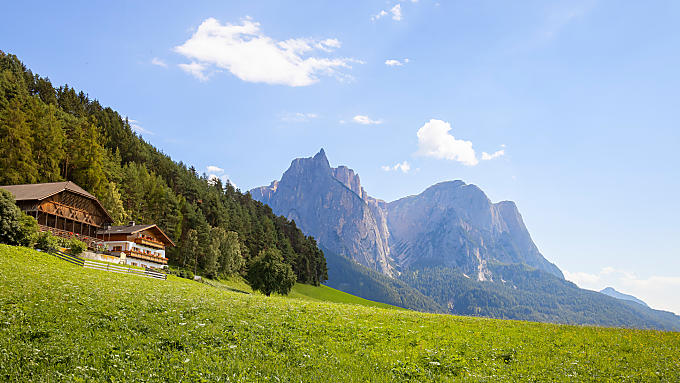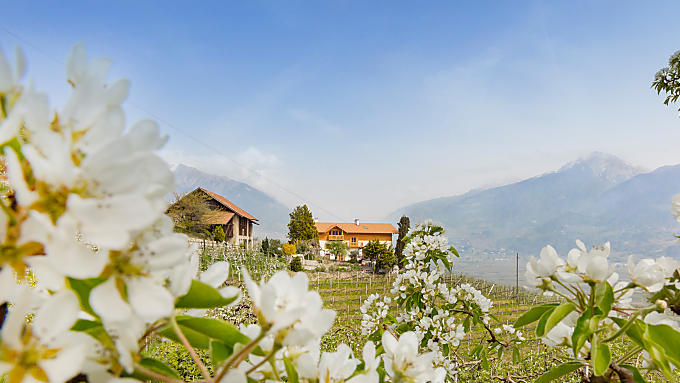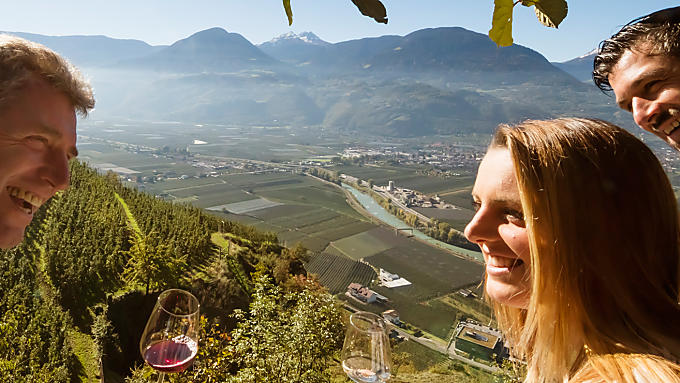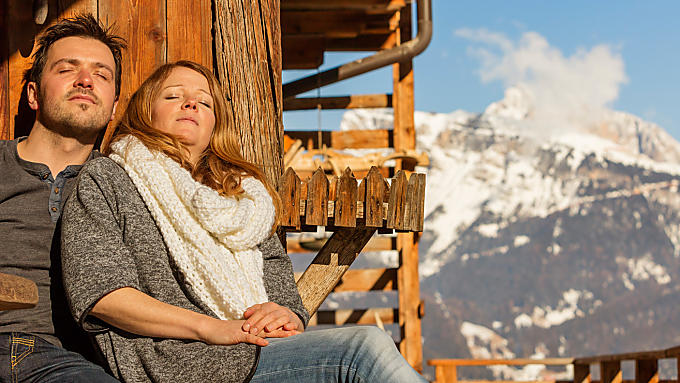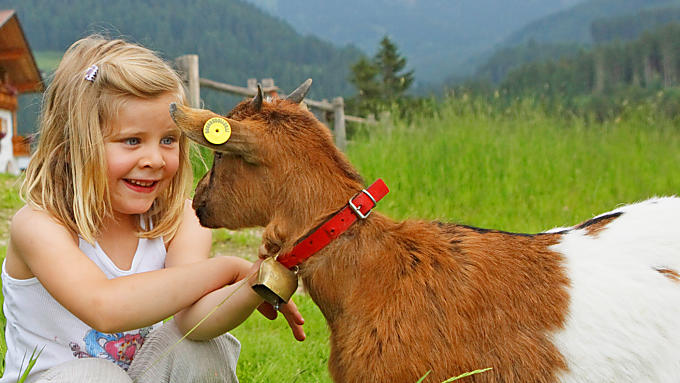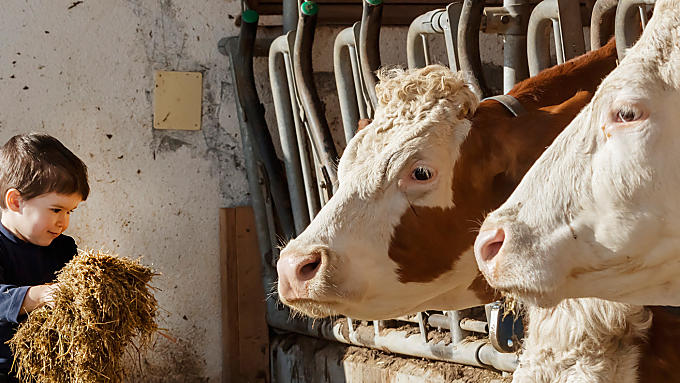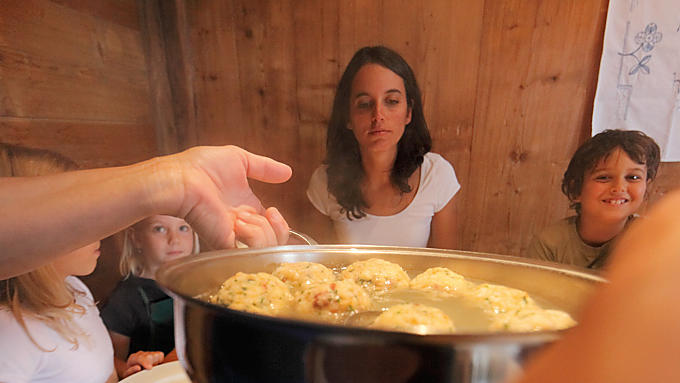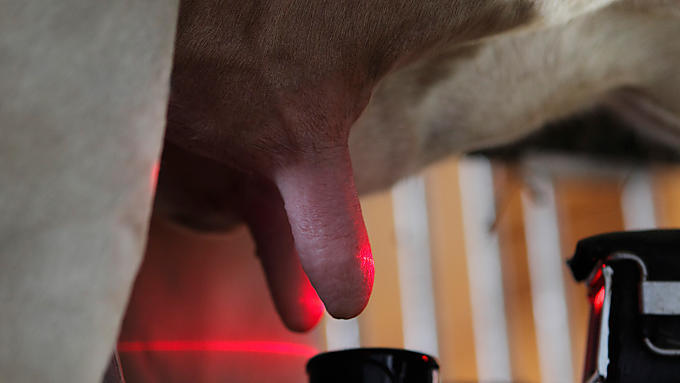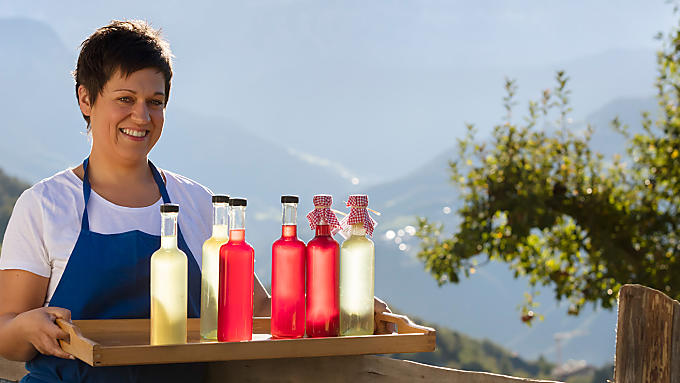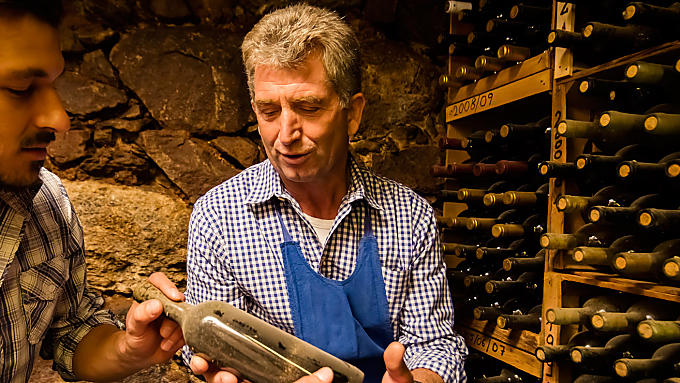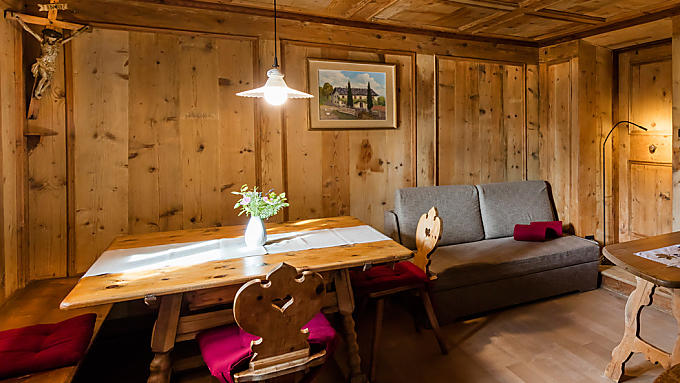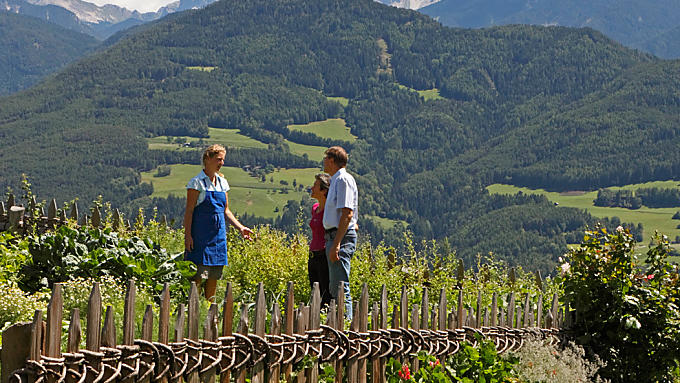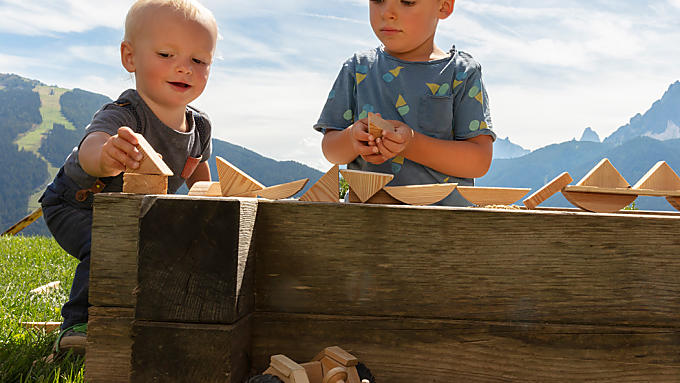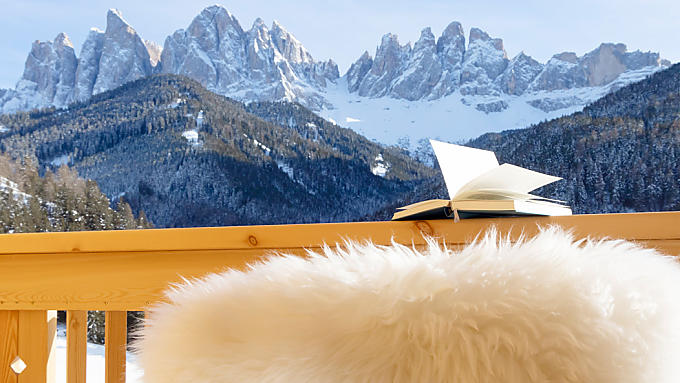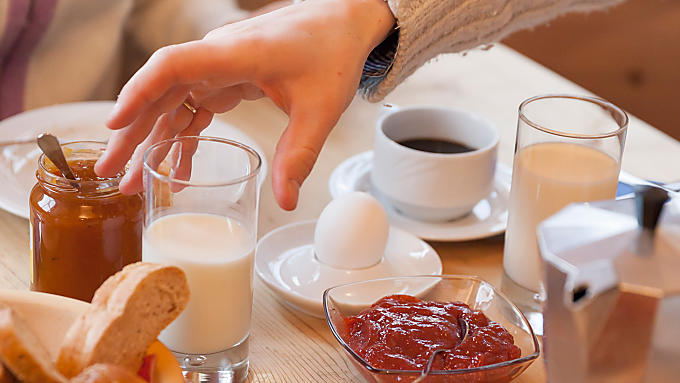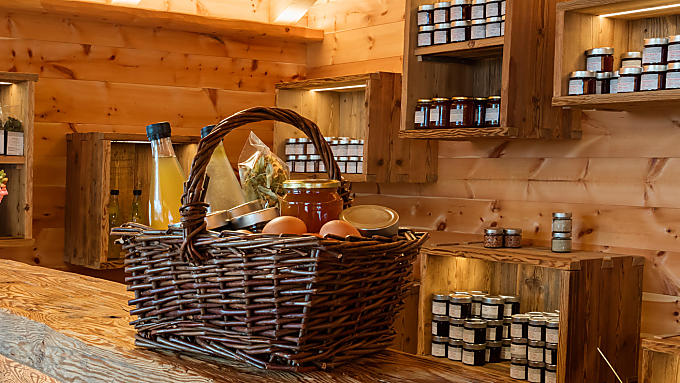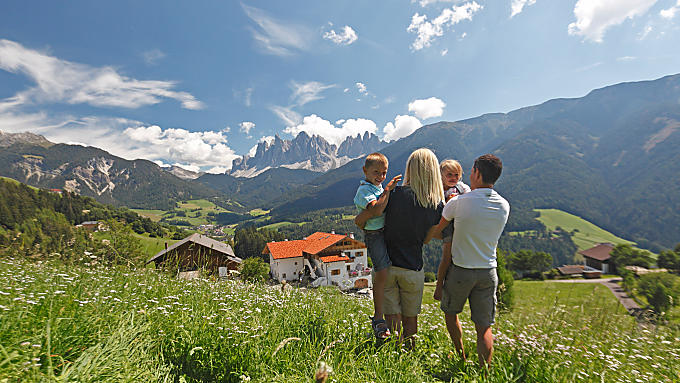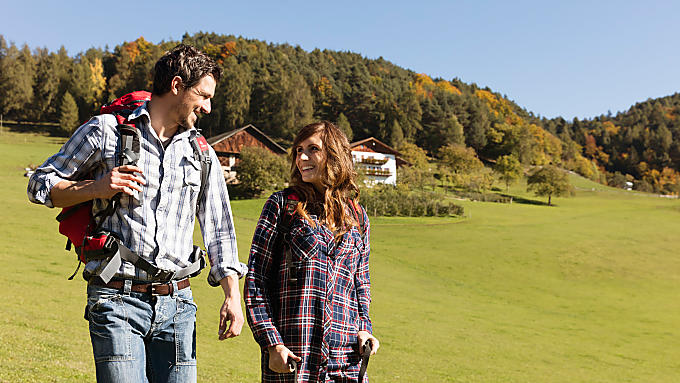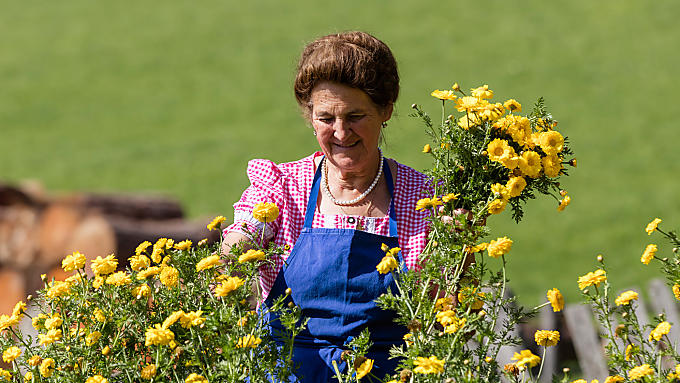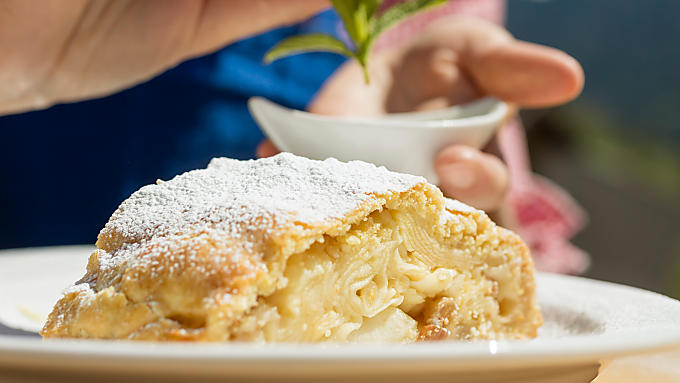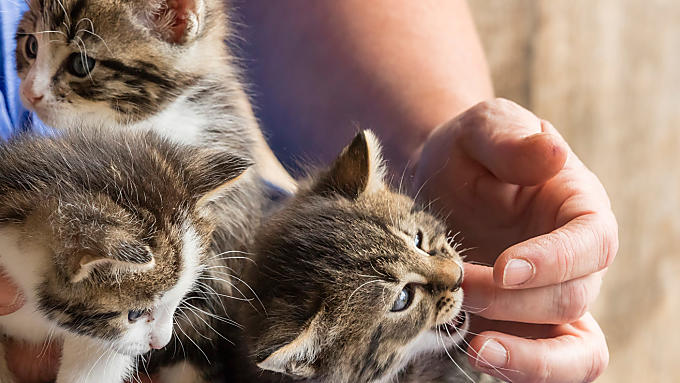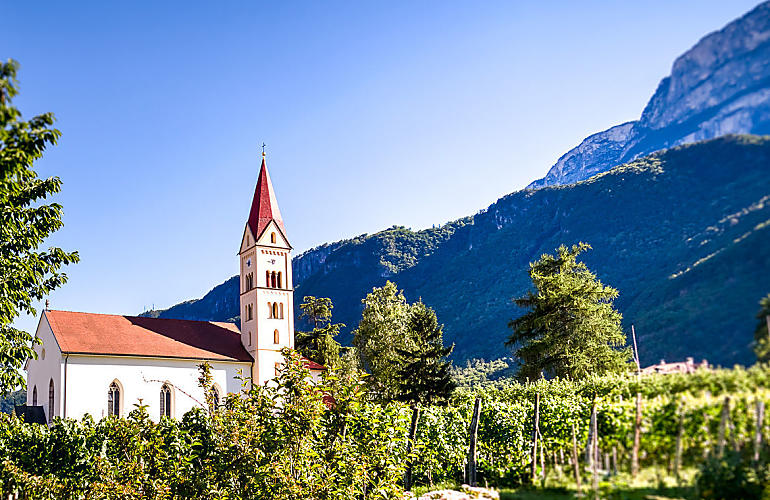
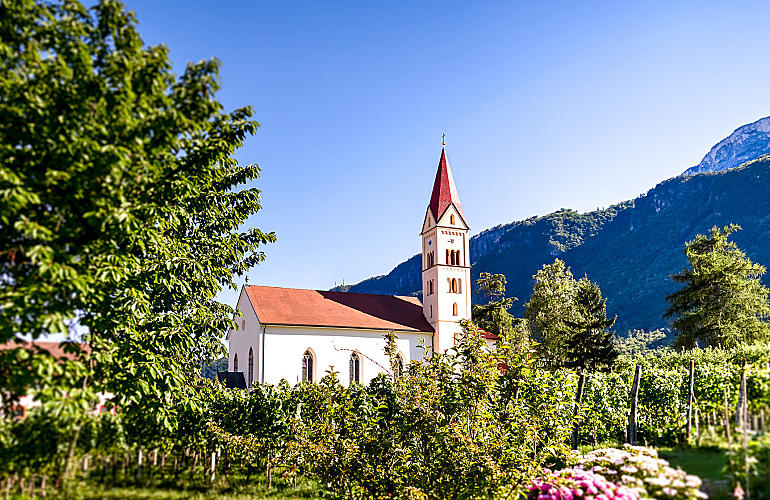
Burning tradition
Holiday location
Farm Holidays in Andrian
A Farm Holiday in Andrian shows that tradition does not mean worshipping the ashes but keeping the fire burning – something that the people of Andrian take seriously.
When, in 1796, the Tyroleans received reports that Napoleon was on his way, they prayed to God for his support in defending their land by putting their faith in the Sacred Heart of Jesus. This oath has been renewed year after year ever since. Thus, 'Herz Jesu' fires took over from the practice of lighting Midsummer bonfires, which are lit on the third Sunday after Whitsun. On this day, a large bonfire blazes out into the night above Andrian in the form of the South Tyrolean eagle featured on the crest. And Andrian, which lies halfway between Bozen and Meran, has stayed true to its rural heritage in other ways, too.
A Farm Holiday in Andrian shows that tradition does not mean worshipping the ashes but keeping the fire burning – something that the people of Andrian take seriously.
When, in 1796, the Tyroleans received reports that Napoleon was on his way, they prayed to God for his support in defending their land by putting their faith in the Sacred Heart of Jesus. This oath has been renewed year after year ever since. Thus, 'Herz Jesu' fires took over from the practice of lighting Midsummer bonfires, which are lit on the third Sunday after Whitsun. On this day, a large bonfire blazes out into the night above Andrian in the form of the South Tyrolean eagle featured on the crest. And Andrian, which lies halfway between Bozen and Meran, has stayed true to its rural heritage in other ways, too.
A village with history
It doesn't take long to come across a traditional farmhouse while staying in a holiday flat or room in Andrian. Lots of farmhouses have carefully kept their original character and this is reflected in the whole village. The church dates back to the 13th century, and an example of a traditional farmhouse, the 'Sternbauerhof', featuring well-kept sacred frescoes from the 16th and 17th century on its outer walls may be found nearby. Likewise in the village centre, there is a striking old house that has been expertly restored for current generations and houses a restaurant. The ruins of Festenstein and Burg Wolfsthurn castles, clinging to a rock high above Andrian complete the villagescape, which refuses to be swept away by the mania for innovation.
And, along with the pleasant calm of the village, just to confirm that the farmhouses are not just relicts of the past, there are the orchards and vineyards around the village. These are not just a sight for sore eyes, but proof that Andrian's food and drink is worth trying, too.
Excellent farm fare
Andrian does not lie on the South Tyrol 'Wine Road' for nothing. The quality of the wines produced here is astounding and, better still, there are frequent wine-tasting sessions which let you try them. Tasting sessions at Andrian Wine Cellar are second to none due to the fact that its vintners have had a long time to develop their art. Founded in 1893, it is the oldest wine cellar in South Tyrol.
Anyone looking for a solid meal will love the 'Wild Garlic Weeks' taking place in Andrian. You can find out about this plant on guided walks. The 'Chestnut Weeks' held in autumn provide similar opportunities, when roasted chestnuts are served on the village square along with walks and information sessions.
A village with history
It doesn't take long to come across a traditional farmhouse while staying in a holiday flat or room in Andrian. Lots of farmhouses have carefully kept their original character and this is reflected in the whole village. The church dates back to the 13th century, and an example of a traditional farmhouse, the 'Sternbauerhof', featuring well-kept sacred frescoes from the 16th and 17th century on its outer walls may be found nearby. Likewise in the village centre, there is a striking old house that has been expertly restored for current generations and houses a restaurant. The ruins of Festenstein and Burg Wolfsthurn castles, clinging to a rock high above Andrian complete the villagescape, which refuses to be swept away by the mania for innovation.
And, along with the pleasant calm of the village, just to confirm that the farmhouses are not just relicts of the past, there are the orchards and vineyards around the village. These are not just a sight for sore eyes, but proof that Andrian's food and drink is worth trying, too.
Excellent farm fare
Andrian does not lie on the South Tyrol 'Wine Road' for nothing. The quality of the wines produced here is astounding and, better still, there are frequent wine-tasting sessions which let you try them. Tasting sessions at Andrian Wine Cellar are second to none due to the fact that its vintners have had a long time to develop their art. Founded in 1893, it is the oldest wine cellar in South Tyrol.
Anyone looking for a solid meal will love the 'Wild Garlic Weeks' taking place in Andrian. You can find out about this plant on guided walks. The 'Chestnut Weeks' held in autumn provide similar opportunities, when roasted chestnuts are served on the village square along with walks and information sessions.
Farm search
Holiday farms in Andrian
3 reasons
A holiday in Andrian
Nestling beneath
Gantkofel rock
The ruins of Festenstein
rise above the village
South Tyrol's oldest
wine cooperative
On Shanks's pony
Hiking also involves enjoying good food, of course. From the village it is a stone's throw to the various hiking paths, such as the start of the Andrian circular walk.
Hiking also involves enjoying good food, of course. From the village it is a stone's throw to the various hiking paths, such as the start of the Andrian circular walk.
The open-air swimming pool at Andrian provides refreshment after a day's walking, which is also appreciated by Bozen locals when the town pool gets too busy. The village tennis courts are close to the pool for a for a challenging game of singles or doubles.
Those missing the buzz of town life can reach Bozen or Meran in 20 minutes.
Staying at a holiday flat or room in Andrian means that you are right in the thick of it when it comes to cuisine, culture and geography. It's no wonder that this part of the world held such appeal for the ancient Romans.


